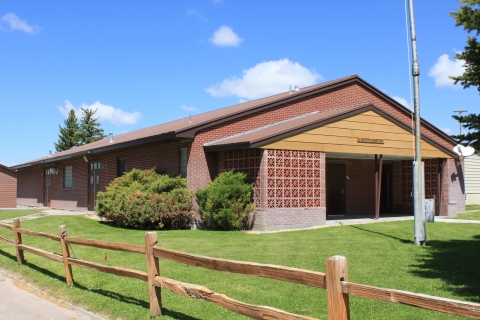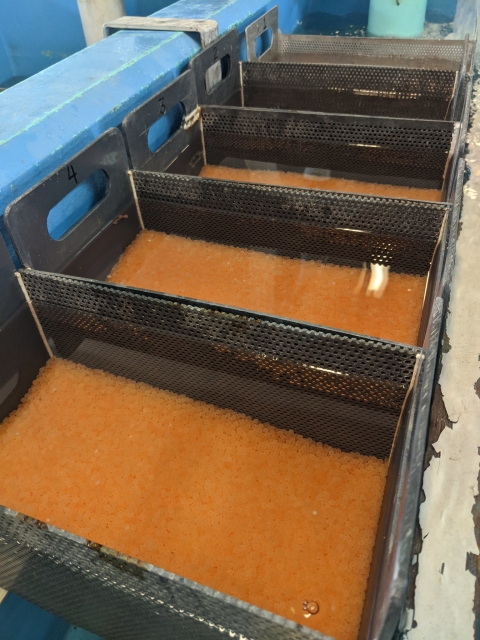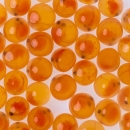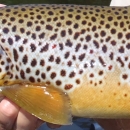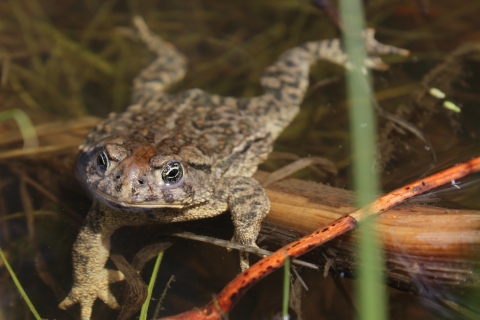Visit Us
Saratoga National Fish Hatchery welcomes visitors to the hatchery for a close-up view of the fish rearing process. With over 3,000 visitors annually, the dedicated staff will be available to answer your questions while you explore the Visitor Center and facilities. Bring the hatchery experience alive with educational programs and hatchery tours, and view the large brood fish and the endangered Wyoming toad. Be sure to stop by from late September to early November to watch the spawning activities.
Location and Contact Information
- Saratoga National Fish HatcheryView DetailsFish Hatchery Road, County Road 207 PO Box 665 Saratoga, WY 82331-0641
About Us
Saratoga National Fish Hatchery, established in 1911, has served as an egg-producing station during most of its years of operation including various strains of brook, rainbow, brown, golden, and cutthroat trout and Dolly Varden eggs. In 1966, Saratoga National Fish Hatchery was formally designated as a broodstock broodstock
The reproductively mature adults in a population that breed (or spawn) and produce more individuals (offspring or progeny).
Learn more about broodstock hatchery, and in 1984, the hatchery became involved in the Great Lakes lake trout recovery program.
What We Do
Currently, Saratoga National Fish Hatchery produces trout and eggs to fill needs for Federal, State, and Tribal waters across the country. The trout species being reared at the hatchery are brown trout, rainbow trout and Yellowstone cutthroat trout. These fish help to replenish and encourage sustainable populations and provide angling opportunities for recreational users.
As the aquatic habitat changes due to natural (drought, flood, habitat destruction) or human (over-harvest, pollution, habitat lost to development and dam construction) influences, the natural production of fish declines. Stocking of these trout is one of the many management strategies used by biologists to help replenish the populations for years to come.
Our Organization
Projects and Research
Saratoga National Fish Hatchery adopted a unique role in becoming the first hatchery in the National Fish Hatchery System to become involved in rearing endangered amphibians. The Wyoming toad (Bufo baxteri), was a common sight on areas of the Laramie Plains, Albany County, Wyoming, into the early 1970s but the populations crashed in the mid-1970s. The Wyoming toad was listed as endangered by the U.S. Fish and Wildlife Service in January 1984.

